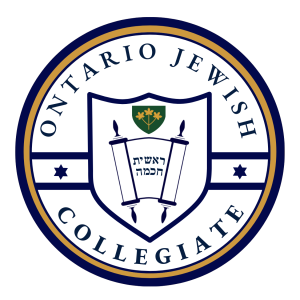 Anna Shternshis doesn’t see Yiddish as an ancient language. She sees it as a link to her heritage.
Anna Shternshis doesn’t see Yiddish as an ancient language. She sees it as a link to her heritage.
Anna Shternshis, an assistant professor of Yiddish at U of T, helped to organize an upcoming symposium that will feature the latest research on Yiddish speakers in eastern Europe.
“If a language dies, it’s the death of a civilization,” said Shternshis, who was born in Russia and is an assistant professor of Yiddish and transnational and diasporic studies at the University of Toronto, and the associate director of the university’s Centre for Jewish Studies.
“It’s not just about vocabulary, it’s a whole culture… It’s important to keep it alive, and translation alone will not cut it. Yiddish provides access to wonderful literature [and] to a vibrant culture.”
Shternshis hopes to prove that this week during a symposium devoted to Yiddish, which she helped to organize. The symposium, called “Ethnography, Culture and Oral History of Yiddish Speakers in Contemporary Eastern Europe,” will include presentations from various researchers who have visited eastern European shtetls, or towns, where the language and Jewish culture has persevered.
“The idea was to highlight this very exciting research that is going on now on finding the last Yiddish speakers of the 20th century who never left eastern Europe,” Shternshis said. “Most astonishingly, they all speak Yiddish. There are some places in Moldova and western Ukraine where you can still go and see people speaking Yiddish in the street.”
Jeff Veidlinger has seen this first-hand. Veidlinger, the director of the Borns Jewish Studies Program at Indiana University, will speak at the symposium about his work on the Archives of Historical and Ethnographic Yiddish Memories oral history project, a collection of about 800 hours worth of Yiddish-language interviews.
The project, which was started in 2002, has taken Veidlinger and his fellow researchers to Ukraine, Moldova, Slovakia and Hungary.
“When I first went to the shtetl, I expected it to look like those old postcards. These are real places with real people,” he said.
Most of the people that Veidlinger interviewed were born between 1900 and 1930 and knew very little about Jewish history, he said.
“Jewish religious practice was very difficult since the 1930s. Most of the people we interview know very little about Jewish religious practices or Jewish history, so their one link to their identity [is Yiddish],” he said.
Mikhail Krutikov, an assistant professor in Judaic and Slavic studies at the University of Michigan, has also done field work in eastern Europe. Through his research, Krutikov, who will be presenting at the symposium, learned that Yiddish is not a dying language, he said.
“There’s this idea that Yiddish would be gone anyway with assimilation. Jews would just stop speaking Yiddish. What we observed there is that, even now… [Yiddish] still survived.
“Yiddish was able to maintain itself up to well into the 1990s… I think this disproves the point that Yiddish was dying.”
Krutikov sees Yiddish as a way for Jews in the Diaspora to connect to one another.
“When I write in Yiddish, I can address people in Australia, New York, Poland,” he said. “Each country is becoming more and more entrenched in its own culture. Yiddish is one of the few languages that is still transnational.”
The symposium takes place on March 7 from 11 a.m. to 5 p.m. at the U of T’s Robert Gill Theatre. Psoy Korolenko, a singer and songwriter from Moscow, performs Virtual Nostalgia, Second Degree, a concert of Soviet popular hits and post-shtetl songs in Russian, Yiddish and Moldavian at 8 p.m. to mark the conclusion of the daylong symposium. For more information, contact [email protected].






